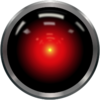Artificial intelligence (nonfiction): Difference between revisions
| Line 2: | Line 2: | ||
== Description == | == Description == | ||
Major AI researchers and textbooks define this field as "the study and design of intelligent agents", in which an intelligent agent is a system that perceives its environment and takes actions that maximize its chances of success. | Major AI researchers and textbooks define this field as "the study and design of intelligent agents", in which an intelligent agent is a system that perceives its environment and takes actions that maximize its chances of success. | ||
Revision as of 11:40, 6 June 2016
Artificial intelligence (AI) is intelligence exhibited by machines.
Description
Major AI researchers and textbooks define this field as "the study and design of intelligent agents", in which an intelligent agent is a system that perceives its environment and takes actions that maximize its chances of success.
John McCarthy, who coined the term in 1955, defines it as "the science and engineering of making intelligent machines".
Some subfields focus on the solution of specific problems. Others focus on one of several possible approaches or on the use of a particular tool or towards the accomplishment of particular applications.
Ethical concerns

Artificial intelligence has been the subject of tremendous optimism.
- But AI has also suffered stunning setbacks.
Artificial intelligence has been the subject of fear (see, for example: HAL 9000, Y2K, The Matrix).
- But these fears are not matched by actual experience.
Nonfiction cross-reference
Fiction cross-reference
- Catch phrase - a predatory (nonfiction) artificial intelligence
- Gnomon algorithm
- Karl Jones
- Mathematics
- Napolean Bonaparte
- Three is the Color of My True Love's Hair
- Three is the Color of My True Love's Hair (analysis)
External links
General
- Artificial intelligence @ Wikipedia
- Artificial intelligence @ Wikipedia


